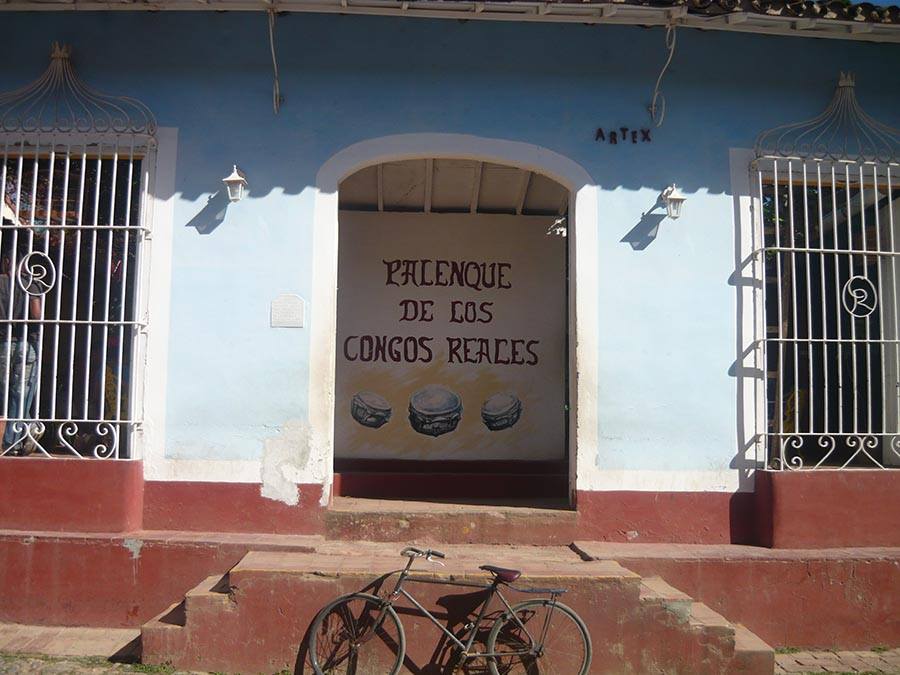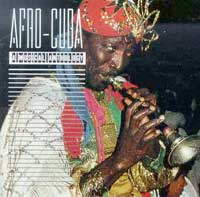Abakuá members derive their culture from the Efik and Efo of the Cross River region in Nigeria, which Cubans call Carabali. They are organized in a set of over 150 potencias (lodges) located mainly in Havana, Matanzas, and Cardenas.
The people of Big Qua Town in Calabar, the capital of Cross River State, Nigeria, are known as the Abakpa, the likely source for the name Abakuá. Big Qua Town is the home of the president of the Calabar Mgbe or Ékpè.
The Cuban Abakuá societies have a male-only membership, their Ékpè equivalent in the Cross River State are called lodges in English, they are fraternities. Both the Cuban and Nigerian lodges are Ékpè lodges.
There is also in Cuba an Efo cultural manifestation organized along family lines, the Brikamo, carried by the Calle family in Matanzas.
In 2001, the Efik National Association in the US began to have contact with Cuban Abakuá. There is evidence of prior contacts between the Abakuá and the Efik in Cuba, but the contact has not until now been sustained. Among such evidence is a plaque hanging on the walls of a potencia in Havana given by an Obong, a traditional leader of the Efiks.
The Abakuá gave us the rumba, one of Cuba’s principal musical traditions. The Calle family, for example, is of Efo origin and is said to have invented the guaguanco, a type of rumba.
We can also note that the Carabali culture in Santiago (cabildos) and in the center of Cuba is also derived from Calabar, Cross River State, Nigeria. The name Carabali is derived from the slave port of Calabar, as distinct from the Karabali people of the Niger Delta.
AfroCubanHist./ Abakua/InternetPhoto/www.TheCubanhistory.com
The Abakua Culture in Cuba
The Cuban History, Hollywood.
Arnoldo Varona, Editor
Foto por Gaby Tizze – En la Ciudad de Trinidad.

LA CULTURA ABAKUA
Abakuá se derivan de su cultura de la Efik y Efó de la región de Cross River en Nigeria, que los cubanos llaman Carabalí. Se organizan en un conjunto de más de 150 Potencias (logias), ubicado principalmente en La Habana, Matanzas y Cárdenas.
La gente de Big Town Qua en Calabar, capital del estado de Cross River, Nigeria, que se conoce como la Abakpa, la fuente más probable de los Abakuá nombre. Qua Big Town es el hogar del presidente de la Mgbe Calabar o Ekpe.
Las sociedades abakuá cubanos tienen una membresía exclusivamente masculino, su equivalente Ekpe en el Estado de Cross River se llaman logias en Inglés, que son las fraternidades. Tanto las logias Cuba y Nigeria son logias Ekpe.
También existe en Cuba una manifestación cultural organizada Efó lo largo de líneas familiares, el Brikamo, llevado por la familia Calle en Matanzas.
En 2001, la Asociación Nacional de efik en los EE.UU. comenzó a tener contacto con los Abakuá de Cuba. No hay evidencia de contactos previos entre los Abakuá y el efik en Cuba, pero el contacto no ha sido hasta ahora mantenido. Entre esas pruebas es una placa que cuelga en las paredes de una POTENCIA en La Habana, dada por un Obong, un líder tradicional de los Efiks.
El Abakuá nos dio la rumba, una de las principales tradiciones musicales de Cuba. La familia de la calle, por ejemplo, es de origen Efó y se dice que han inventado el guaguancó, un tipo de rumba.
También podemos observar que la cultura en Santiago Carabalí (cabildos) y en el centro de Cuba también se deriva de Calabar, Cross River State, Nigeria. El nombre de Carabalí se deriva del puerto de esclavos de Calabar, a diferencia de las personas Karabalí del Delta del Níger.
AfroCubanHist./ Abakua/InternetPhoto/www.TheCubanhistory.com
The Abakua Culture in Cuba
The Cuban History, Hollywood.
Arnoldo Varona, Editor





